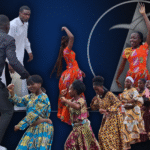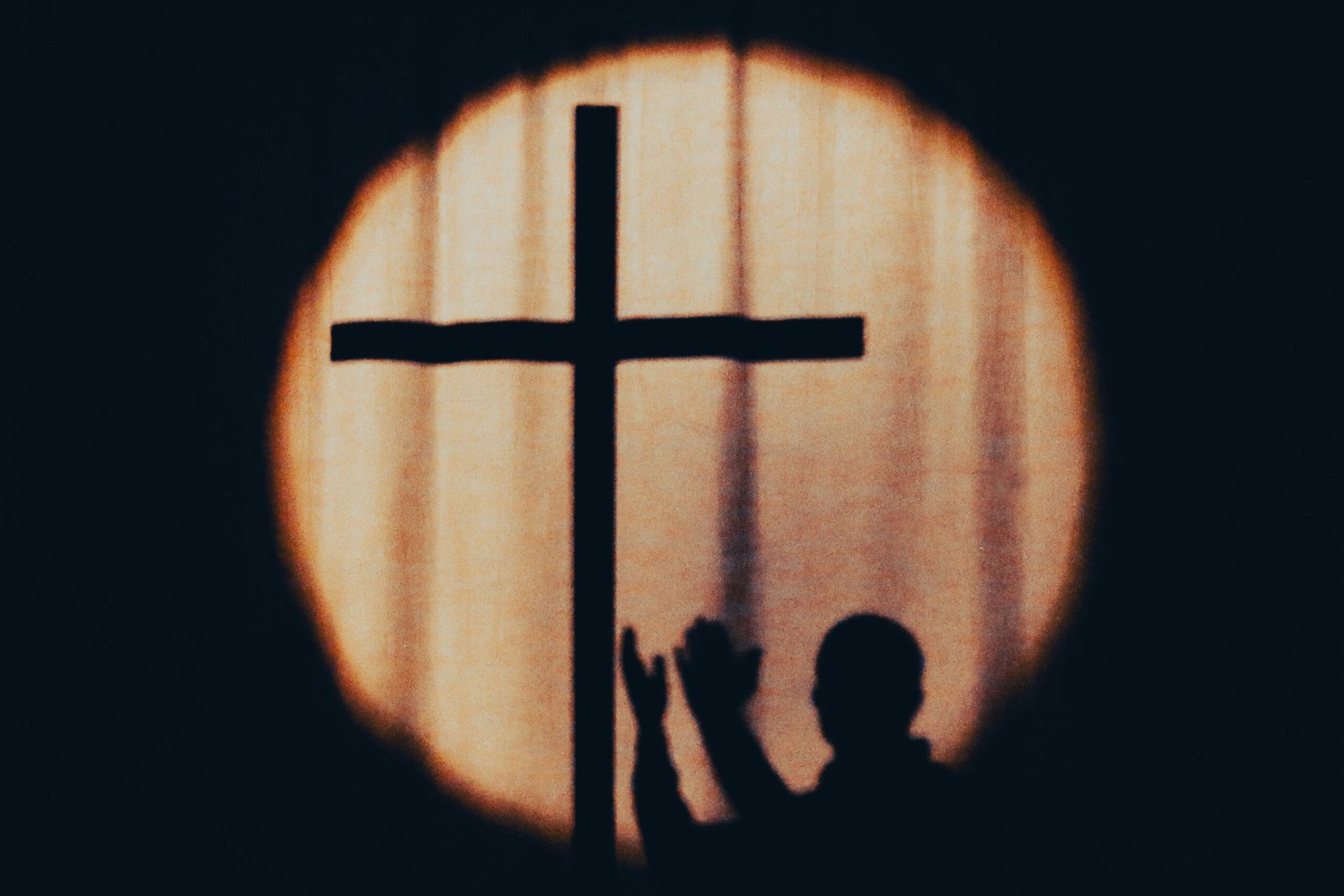
Gospel according to Saint Matthew 10,37-42:
Jesus said to his apostles: “Whoever loves father or mother more than me is not worthy of me, and whoever loves son or daughter more than me is not worthy of me; and whoever does not take up his cross and follow after me is not worthy of me. Whoever finds his life will lose it, and whoever loses his life for my sake will find it.
“Whoever receives you receives me, and whoever receives me receives the one who sent me. Whoever receives a prophet because he is a prophet will receive a prophet’s reward, and whoever receives a righteous man because he is a righteous man will receive a righteous man’s reward. And whoever gives only a cup of cold water to one of these little ones to drink because the little one is a disciple— amen, I say to you, he will surely not lose his reward.”
The shadow of a cross
Luis CASASUS President of the Idente Missionaries
Rome, July 02, 2023 | XIII Sunday in Ordinary Time
2Kgs 4:8-11.14-16a; Rom 6:3-4.8-11; Mt 10:37-42
When we hear Christ say that whoever loves his father or mother more than he loves Him, is not worthy to follow Him, sometimes a kind of dilemma comes to our mind, the impression that these two loves are incompatible. It is evident that this cannot be so, even in the case of a person who leaves home to serve God in some form of consecration. In fact, He wants us to understand that even the most sublime form of love, filial love, as we human beings understand it, has to be transformed in order to live as an authentic disciple of Jesus. In the words of St. Augustine: Christ has come to transform love.
In a simple way, a prayerful soul summed up this truth:
I asked God to take away my pain. God said to me: No. It is not I who must take it away, but you who must give it away.
I asked God to heal my handicapped son. God said: No. His spirit is healthy, but his body is only temporary.
I asked God to give me patience. God said: No. Patience is the result of tribulations. It is not given away, it is earned.
I asked God to spare me pain. God said: No. Suffering takes you away from worldly concerns and draws you closer to me.
I asked God to grow my spirit. God said: No. You must grow on your own, but I will prune you so that you will be fruitful.
I asked Him for all the things necessary to enjoy life. God said: No. I will give you life to enjoy all things.
I asked God to help me to love others as much as He loves me. God said. Ah, you finally got the idea.
We all have the experience that our love for God and neighbor can (and should) grow more. There are activities, moments of the day, or affections, in which we put our whole heart; they are, as Christ himself says, concerns, instants or sympathies that constitute our authentic treasure, that which literally gives us enthusiasm, which contrasts with our lukewarm or incomplete way of following Christ.
We all have the experience that our love for God and neighbor can (and should) grow more. There are activities, moments of the day, or affections, in which we put our whole heart; they are, as Christ himself says, cares, instants or sympathies that constitute our true treasure, that which literally fill us with enthusiasm, which contrasts with our lukewarm or incomplete way of following Christ.
—ooOoo—
The words of Christ in today’s Gospel also mean that when we decide to follow him, we become members of a family, in which the bonds are not affinities, likenesses or sympathies… The First Reading offers us a precious key: it is enough to see that a person desires to serve God, to be his witness, to know that he can change our life, regardless of whether we see in him an admirable virtue or, on the contrary, his life is full of signs that are unworthy of a true apostle.
The Shunammite woman had the grace of meeting Elisha and saw her dream of becoming a mother fulfilled. We all remember some person who has taught us something essential for our Christian life, and perhaps we have walked with that person for years or maybe we follow in his or her footsteps with enthusiasm; that is the case for those of us who follow a founder.
But at other times, the person who crosses our path seems mediocre, perhaps scandalous, even though our own life may also be mediocre.
What are we to do then? Be faithful to what Christ tells us today, doing everything possible for that person, even if it means giving him or her a glass of water, just because he or she is a disciple of Christ.
That is what he himself did with his first followers, even though they gave him much trouble and misunderstood him; they were afraid, there was envy among them and one handed him over to the executioners.
It is not the virtue or the exemplary life of a disciple that should push us to show him active mercy, but only the fact that God touched his heart one day, or do we not think so? or do we think that the Holy Spirit made a mistake?
Sickness, the passing of years, fear, disappointments, the temptation of power and fame are too strong for us. Someone who one day was moved to leave everything for the kingdom of heaven, perhaps today follows a path of shadows from which no one seems to be able to pull him out. This is our perspective, but not necessarily that of Christ.
In the opening Chapter 13 of Luke, Jesus refers to the Galileans who were slaughtered by Pilate, and the 18 who were crushed to death when the tower of Siloam fell. The popular interpretation is that this was due to the gravity of their sins. However, immediately afterwards, St. Luke presents us with the parable of the fig tree that does not bear fruit, which is given a period of one year to bear fruit: if it does not fulfill this expectation, it will be eliminated.
Christ’s conclusion is clear and provocative: Do you think that those who died were more to blame than the other inhabitants of Jerusalem? Do I think that this person, perhaps consecrated, perhaps with many responsibilities, perhaps scandalous, is more to blame than me? The barren fig tree represents you and me. The scandal is the lack of fruit and, therefore, the point of reflection is what are the fruits that you and I should bear.
Surely, because of all the above, we must look very carefully at how to treat any person who has been called by God, who undoubtedly needs a very specific witness of our lives: the fruits we bring to the kingdom of heaven, which cannot always be counted, but are equally powerful, such as recognizing our mistakes with simplicity, the living of new forms of charity, mercy with those who have any form of weakness…The basic idea of conversion is simply change. And the changes in our spiritual life are visible, they are an invitation to the conversion of others.
Let us be clear: conversion does not come easily. Christ wept when he looked at Jerusalem, because of the hardness of heart of its inhabitants. He knew that the necessary punishment for the necessary conversion would not be lacking. In this historical case, the destruction of the temple.
Today there are also people – perhaps some of us – who die without showing any sign of conversion, without ever asking for forgiveness, without ever remembering to have committed a fault. But nothing is impossible for God, as we learn from the life of Christ, who raised the dead, cured the sick, opened the eyes of the blind and, above all, changed hearts.
As the Second Reading says, we should consider ourselves already dead to sin and alive to God in Christ Jesus, which makes us suspect that Christ is very serious when he says that we lose our life when we try to save it by worldly means, even if they are licit. Like the barren fig tree, a punishment awaits us, a purgatory that surely consists of a river of bitter tears, for realizing that we have indeed lost time and life, authentic life. As our father Founder told us, even if divine mercy welcomes us in heaven, we should try not to deserve purgatory, not only for the pain it means, but for the joy we have not given to the persons of the Most Holy Trinity and to the saints.
—ooOoo—
Let us not forget that today Christ also tells us that to be his disciple entails carrying the cross. It is another call to live the realism of the Gospel. To follow Christ is possible in the midst of my weakness, my doubts, my faults, external setbacks… To follow Christ is possible by carrying out a modest mission, very different from what I had dreamed of doing for God and for my neighbor. Only if I keep in mind that Christ goes before me, with his Cross, will I be able to follow him, otherwise, I will be following my small generosity, my small dream.
With the example of the Shunammite woman, the advice of St. Paul and the words of Jesus about the cross and the treatment of those He calls, today seems a good day for us to look at our lives and – besides our faults – recognize that we are surely “installed” in our spiritual life and in our relationship with those who walk beside us, brothers and sisters who carry their cross, even if awkwardly, like you and me.
We do not know how God the Father will use the glass of water we give to a saintly or mediocre apostle, or the welcome given to one who openly persecutes us. We do not know when that person will be radically converted, whether in a few weeks, shortly before he dies, or when he comes face to face with our heavenly Father. But God is a God of surprises, as Pope Francis reminds us.
By way of illustration, I conclude with a story that is one more, about the infinite signs that Providence knows how to put in our lives to dissolve our resistance to carry the cross, our spiritual laziness, which affects everyone, the so-called generous and the so-called selfish.
A young man who had been raised as an atheist was training to be a springboard jumper. The only religious influence in his life came from his outspoken Catholic friend. The young athlete never really paid much attention to his friend’s comments, but he heard them often.
One night the diver went to the indoor pool at the college he attended. The lights were all off, but as the pool had big skylights and the moon was bright, there was plenty of light to practice by. The young man climbed up to the highest jumping board and as he turned his back to the pool on the edge of the board and extended his arms out, He saw his shadow on the wall.
The shadow of his body was in the shape of a cross. Instead of jumping, he knelt down and asked God to come into his life. As the young man stood, a maintenance man walked in and turned the lights on. The pool had been drained for repairs.
______________________________
In the Sacred Hearts of Jesus, Mary and Joseph,
Luis CASASUS
President













